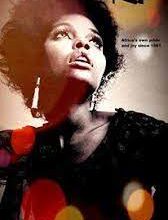Prosper Ngomashi – Comic Pastor-The “Pastor” who preaches mental therapy
Walking Down The Memory Lane - Lest We Forget| Zimbabwe Legends - 1ZimLegends

Prosper Ngomashi

By Tapfuma Machakaire 22/10/2022
A comedian is a person with the nose to sniff topical issues and craft a comical formula of interpreting and disseminating information to the general public. Successful comedians are those born with the attributes that may also include physical appearance and body language and not those who have to be trained from scratch to act as comedians.
As a young boy at primary school on June 28, 1997 Prosper Ngomashi watched the World Boxing Association Heavyweight Championship match in which Mike Tyson bit off a part of Evander Holyfield’s ear.
Whereas other lads just laughed about the incident Ngomashi related it to the famous Shona idiom akuruma nzeve ndewako which translates to – he who gives you advice is your friend. Although the context was totally different from what had transpired in the ring since Tyson had to be suspended from boxing, Ngomashi crafted one of his first skits which exposed signs of a young man born a comedian.
Ngomashi now popularly known as the Comic Pastor had already been in the game at Makomo primary school in Epworth, playing the news reader in school drama. At his local church Ngomashi became popular with performances at functions such as the Easter gatherings. By then, he says he never knew about stand-up comedy but had his own idea of comedy which he called sermons.
Ngomashi did his secondary education at Epworth Secondary but did not qualify to proceed to A Level. “I had passed my ordinary level, but it was not easy to combine the five subjects which are prescribed. I could not go for advanced level and I feel also that was the time when O’ level was regarded as a qualification by our parents, so I was done with my education,” says Ngomashi who later trained as a sales person.”
For some years, Ngomashi went on a wild goose chase at the expense of developing his natural talent. This saw him working as a herd boy in Mahalapye Botswana for a whole year in 2002 and attempting to operate as a cross boarder trader.
“The feeling of being a herd boy was not as bad.It was an experience I never had since I hardly visited our rural home in Dande, Guruve. But I felt like a useless person when I compared myself with my former schoolmates who had proceeded with their A Level studies.”
On his return home Ngomashi worked as a security guard up to 2008, a time the country experienced its worst economic meltdown.
He later jumped the border into South Africa with some friends in search of jobs.
“We teamed up with my friends and we crossed via Limpopo River.The scary part of the whole journey was us deciding to sleep in the game reserves just across Limpopo. We were afraid to move in the night,” Ngomashi told a Herald reporter.
He recalled being arrested in Louis Trichardt after successfully escaping all the other road blocks,“and we got deported after four days.”
At some stage, Ngomashi had started recording skits on his phone“I started filming myself with my mobile phone and sharing on social media.”
Ngomashi became a professional comedian after he attended a workshop hosted by an organisation called Simuka Comedy. Established in 2013, Simuka Comedy is a stand-up comedy performance platform that brings together comedians to perform at different venues.
The workshop saw Ngomashi performing at the monthly Simuka Comedy nights in Harare until he graduated to become a headline act. He has performed alongside well-known local comedians like Simba the Comic King, Doc Vikela, Carl Joshua Ncube and the late Clive Chigubhu.
In 2016, he became famous for the skit in which he satirized the then ZIFA Boss and politician Phillip Chiyangwa refusing to stop at a police road block.
This was after he had been elevated through his comedy video titled Shamu which went viral on WhatsApp and Facebook in 2015. Comic Pastor is now part of P.O. Box a comedy video film company that publishes videos mainly on Facebook. Ngomashi appears in P.O. Box videos along with Sharon Chideu aka Maggie and Samantha Kureya aka Gonyeti.
Some of his short videos include Zvirikufaya paEpworth ndichigeza phone,
Ngomashi reckons the Covid-19 pandemic provided opportunities for comedians “The lockdown has been a blessing in disguise since most of my work was on social media.Many people were glued to the social media while observing the lockdown.”
He says comedians also have the role of being the voice of the voiceless. In an interview with NewZimbabwe.com, Ngomashi said the purpose of his skits is to speak out against societal vices and highlight problems that citizens face.
“Comedy speaks out for those in our societies who cannot stand up for themselves,Let’s take for example the period where there was a fuel crisis, as comedians we then came up with skits or jokes which satirized that problem.”
“It’s a known fact that in our communities we also have people who are afraid to speak out, so, as artists, we speak for them and maybe things are fixed.”
He says comedy also serves to entertain and unite communities.
Ngomashi’s work has seen him scoop a number of accolades, among them the Zimbabwe Business Awards including Funniest Influencer and Best Social Media Entrepreneur.
Ngomashi tied the note with Ruvheneko in November 2017.And as if he was being comical about his marriage he said he would not stop doing comedy because he was married. “One thing I wish to promise my fans is that I will not stop doing comedy, it has now become a part of me and I am happy that my wife is also supportive of my career.” And he also posted a picture of him and his wife, which attracted funny comments from the public with some saying the two looked alike. Ngomashi says comedy industry pays well if taken seriously.



315 Comments